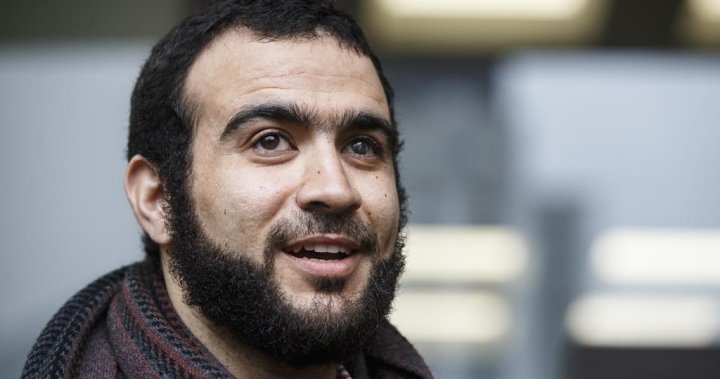The United States Supreme Court rejected an appeal by Omar Khadr, a Canadian-born former Guantanamo detainee seeking to have his war crimes convictions erased. In 2010, Khadr pleaded guilty to charges that included murder, but his lawyers argued that a subsequent ruling by a federal appeals court called into question whether he could have been charged in the first place. Despite the ruling, a divided three-judge panel decided that Khadr had waived his right to appeal, ending his legal options. Justices Brett Kavanaugh and Ketanji Brown Jackson did not participate in the Supreme Court’s consideration of Khadr’s appeal due to their prior involvement in the case.
Khadr had been sentenced to eight years in prison, in addition to time already served, including several years at Guantanamo Bay. He was released in May 2015 while appealing his guilty plea. A Canadian judge ruled in 2019 that his war crimes sentence had expired. Khadr was only 15 years old when captured by U.S. troops following a firefight in Afghanistan that resulted in the death of American special forces medic, U.S. Army Sgt. First Class Christopher Speer. Khadr was suspected of throwing the grenade that killed Speer, taken to Guantanamo, and charged with war crimes by a military commission.
Despite the efforts of Khadr’s legal team, the Supreme Court’s rejection of his appeal means that his war crimes convictions, including for the killing of a U.S. soldier, will remain on his record. Khadr’s case has been controversial, with his supporters claiming he was a child soldier coerced into his actions, while others view him as a dangerous terrorist. The decision not to allow his appeal signifies the final stage in a lengthy legal battle that has spanned more than a decade since his initial capture and detention at Guantanamo Bay.
The involvement of federal appeals court judges Brett Kavanaugh and Ketanji Brown Jackson in Khadr’s case meant that both had to recuse themselves from considering his appeal at the Supreme Court level. This recusal was due to their prior interactions with the case during their time on the appeals court. The legal complexities of Khadr’s situation, as a former detainee at Guantanamo Bay, have led to debates about the treatment of individuals suspected of terrorism and the appropriate legal recourse for those accused of war crimes.
The case of Omar Khadr highlights the challenges of dealing with individuals captured and detained on suspicion of terrorism-related activities, especially when they were minors at the time of their alleged crimes. The legal implications of his appeal and subsequent rejection by the Supreme Court raise questions about international law, human rights, and the treatment of prisoners of war in the context of modern warfare. The decision not to overturn Khadr’s war crimes convictions underscores the complexities of balancing justice, security, and individual rights in cases involving terrorism and the laws of war.
Overall, the Supreme Court’s rejection of Omar Khadr’s appeal represents the final chapter in a long legal saga that began with his capture as a teenager in a conflict zone and culminated in his imprisonment, guilty plea, and subsequent legal battles. The case has sparked debates about the rights of detainees, the use of military commissions for prosecuting war crimes, and the treatment of child soldiers in armed conflicts. Khadr’s story serves as a reminder of the complex legal, ethical, and political issues surrounding terrorism, human rights, and justice in the aftermath of 9/11 and the global war on terror.


